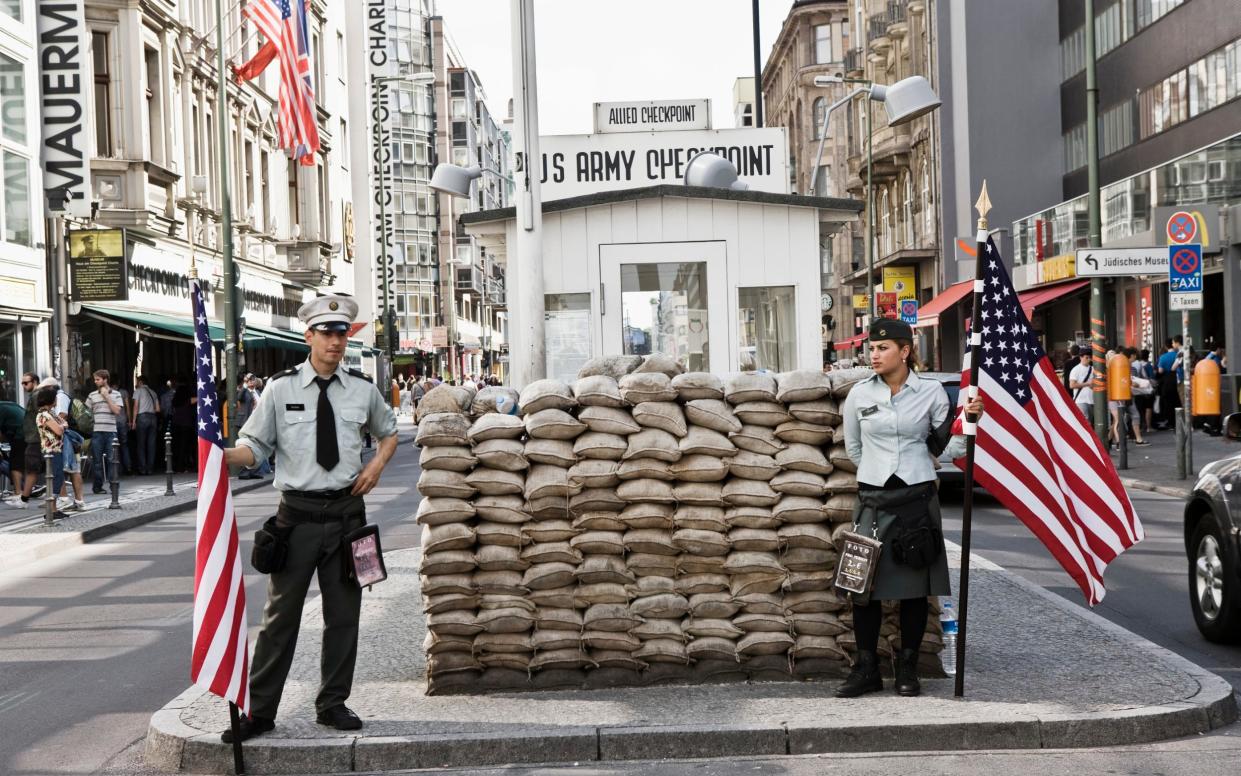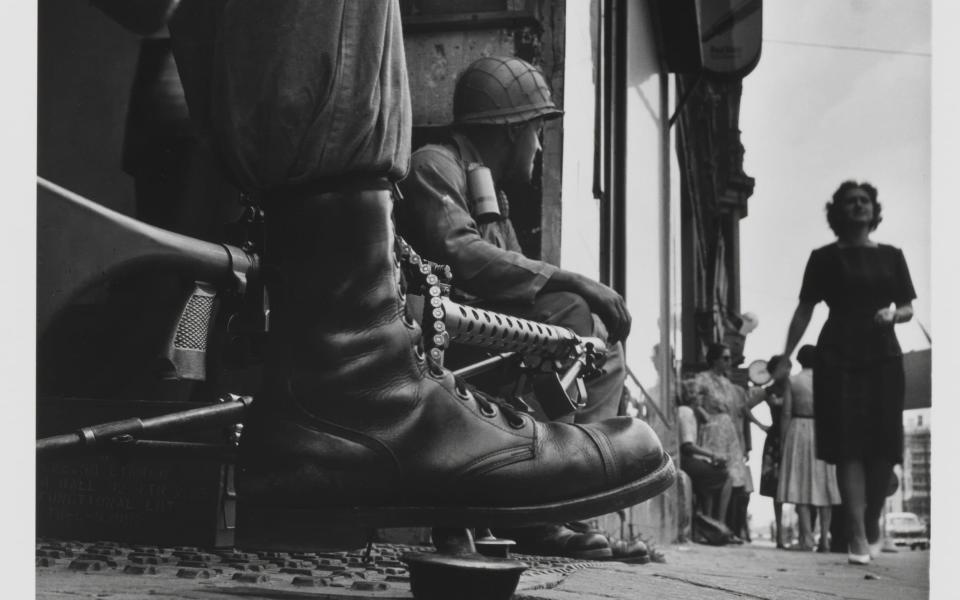Friedrichstrasse 19 by Emma Harding review: a decade-straddling love letter to Berlin

- Oops!Something went wrong.Please try again later.
Friedrichstrasse is, of course, a real street, still combining the plush with the rough, the romance of Berlin with its tragedy. Bisected after the war by the Berlin Wall, it made regular cameos in a succession of Cold War thrillers as the location of the now almost mythic Checkpoint Charlie.
Emma Harding’s Friedrichstrasse 19 is an ingenious and ambitious debut, formally inventive, rich with character and incident. Her characters are unified by the fact of having lived at the address in the title, but at different points between the early 20th century and early 21st. Heike, a “child of the DDR”, is the character who is (more or less) our contemporary. She leapt over the Wall the year it fell and is still in thrall to the freedoms of the unified city.
Heike’s feelings about the city seem to mirror Harding’s own: “The regular pulse of the trams and the U-Bahn, the intestinal complexity of cabling and sewers, pipes and fibre-optics, the flow of people, the apparent self-organisation of it, the unspoken conspiracy to get along, to make it work, to somehow find one’s own space within it.”
Heike is joined on these pages by other oddballs: the asexual pornographer, the new-minted lesbian discovering the Weimar demi-monde, the young man exposing his family’s Nazi past. Most are what one of Harding’s characters describes as “outcasts & rebels & queers”.
Harding has worked for some years as a writer and producer of drama for BBC Radio 3 and 4. Her prose has something of the radio writer’s fondness for the sort of calculated lyricism that it can be a pleasure to read aloud.

The book also has other, unhappier things in common with the BBC prestige drama. Harding reaches often, and rather too readily, for settings and plots now part of the popular cliché of literary-cinematic Berlin. Isherwood’s salacious cabaret dancers are here, as are the Cold War grifters familiar from Ian McEwan’s The Innocent. We see the gritty city of the over-exposed Baader-Meinhof Gang’s active years, and the city’s dilatory reckoning with its Nazi past, so potently condemned in Bernhard Schlink’s The Reader.
We get, inevitably, a moment where an escapee from the DDR has her first sip of Coca-Cola, and one where someone must ask his aging mother why there is a photograph of her standing with Adolf Eichmann. The prose lapses every now and then into the tritely sonorous: “How did one reconcile this in humans?” wonders a character after observing a casual kindness from a man who may once have been “an SA thug”. “The capacity for empathy and tenderness with the impulse to power, control, torture?”
Reactions to Harding’s other technical experiments will prove a matter of taste: the sporadic sections of unpunctuated stream of consciousness and the mid-sentence leaps from character to character, decade to decade. Against these questionable features might be counted the author’s unconditional, unfakeable, infectious love of Berlin, her ability to find in every phase of its bruised, unsettled 20th-century century something to cheer, love or mourn.
Friedrichstrasse 19 by Emma Harding is published by John Murray at £12.99. To order your copy for £12.99, visit Telegraph Books

